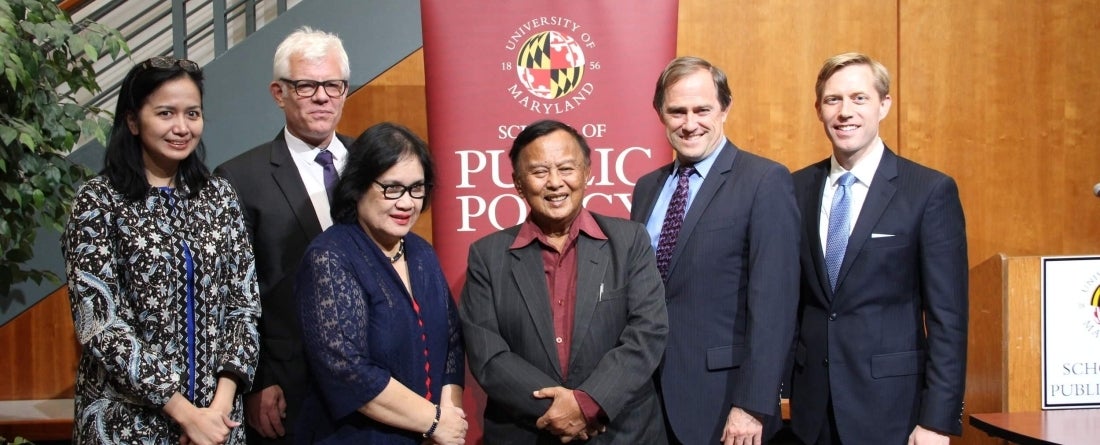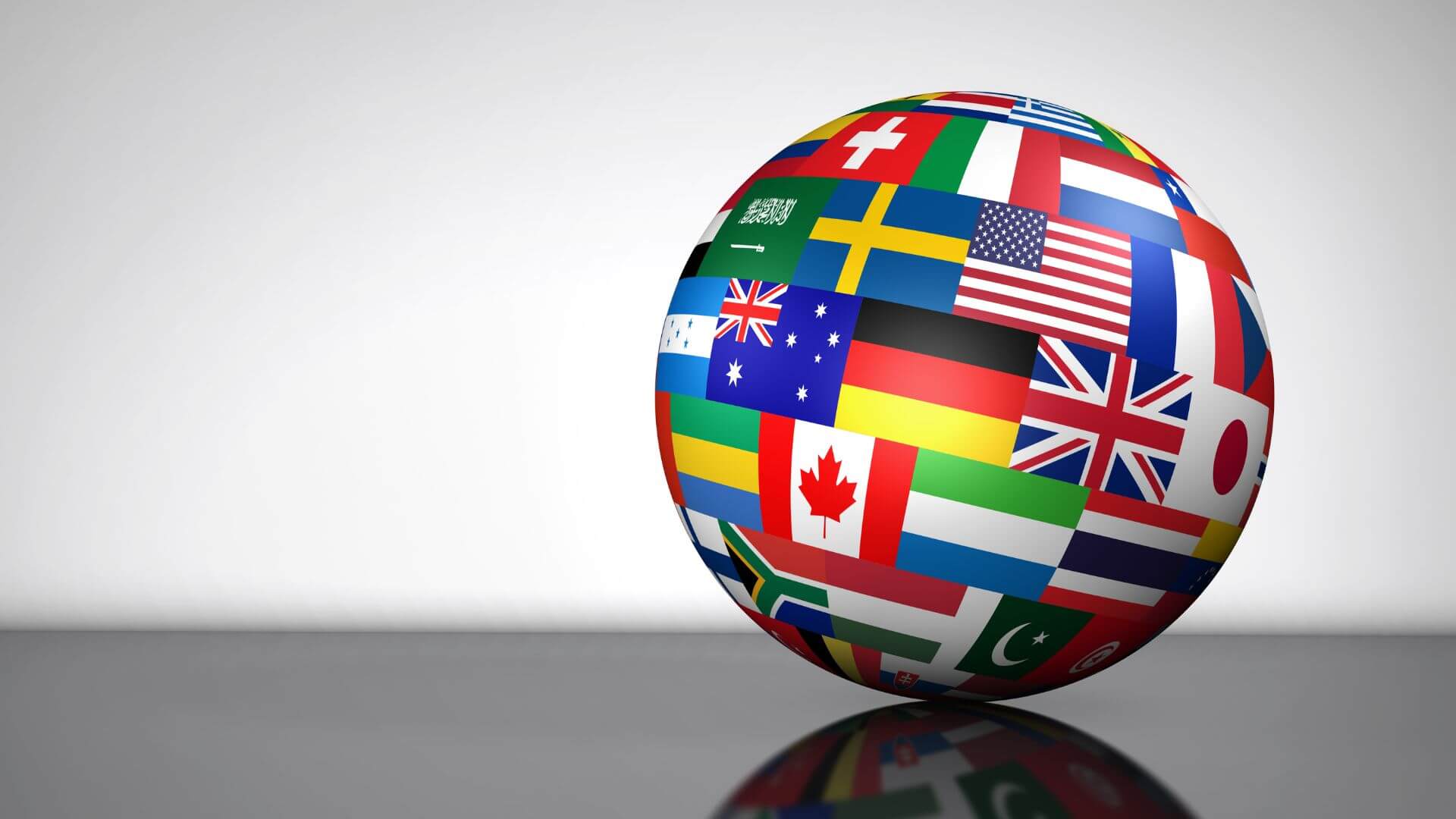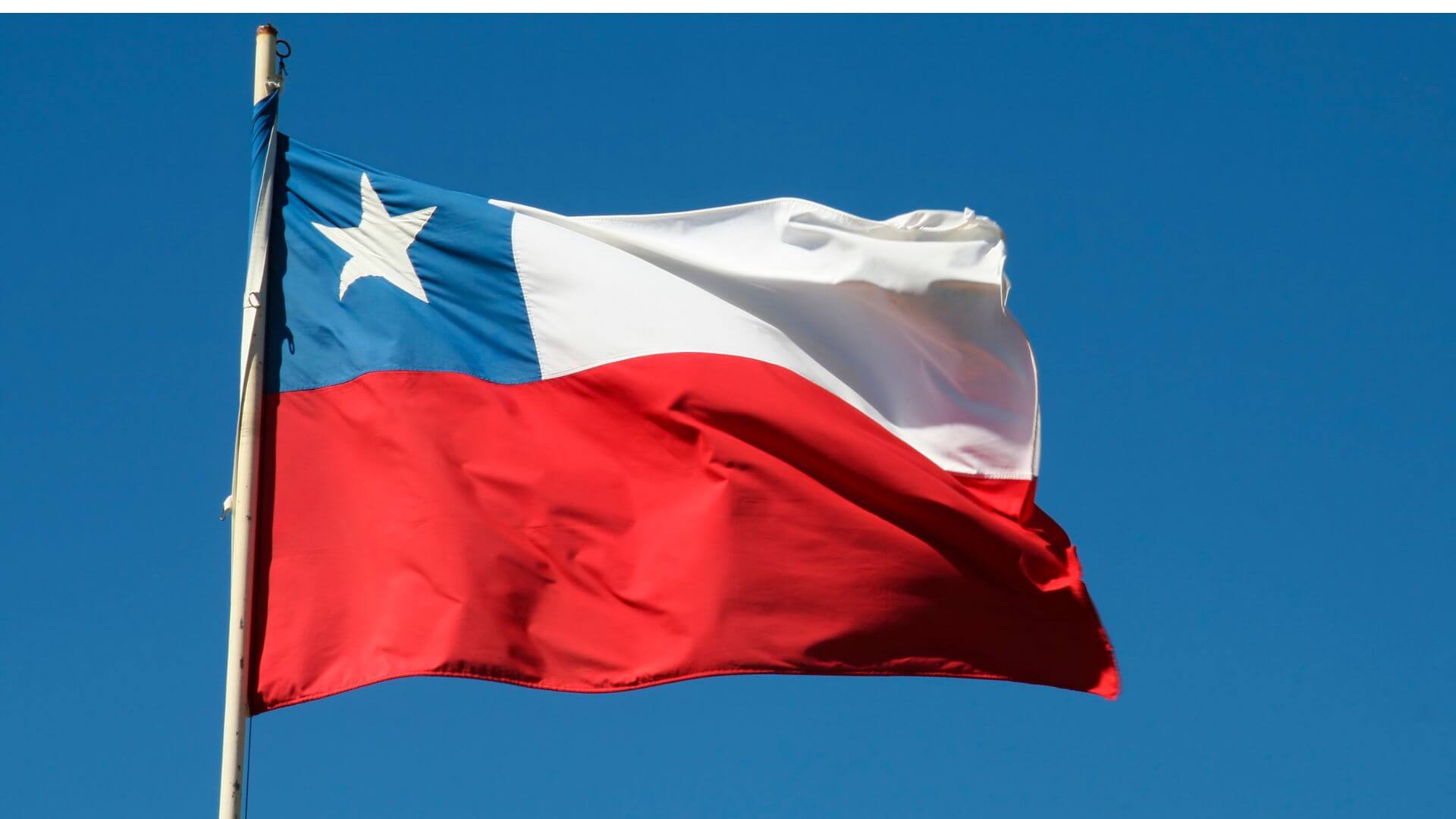
The Center for Global Sustainability and School of Public Policy recently hosted Ambassador Rachmat Witoelar, Indonesian President’s Special Envoy for Climate Change, for a special event to discuss current issues facing Indonesia, specifically deforestation, and potential ways to achieve sustainable economic growth and meet commitments under the Paris Agreement.
“If Indonesia is to achieve its greenhouse gas emission reduction targets, Indonesia needs to solve issues in forests and fires,” Amb. Witoelar said. The main drivers of deforestation in Indonesia are agriculture and forestry activities and forest fires. Fires have been occurring frequently and on a large scale in Indonesia, resulting in a large release of GHG emissions.
However, Indonesia relies heavily on the agricultural and forestry sectors for economic growth, especially the palm oil industry. Indonesia’s main export is palm oil and the industry currently employs millions of people. Amb. Witoelar noted these are important considerations as Indonesia strives to meet its Paris Agreement goals. He was optimistic about such possibilities and believes there is a way forward to sustainable development. He suggested that Indonesia is improving governance to include stakeholders, including small landholders, businesses, and the local government. Amb. Witoelar also discussed the potential for increasing productivity through research and innovation, and increasing data availability and transparency for monitoring and evaluation to increase public trust.
Indonesia is targeting a 29% reduction of greenhouse gas (GHG) emissions from a business-as-usual (BAU) projection with national efforts and up to 41% reductions conditional on international cooperation. The country also has sustainable economic growth targets of 5.2% economic growth and a reduction in poverty by the end of 2017.
Additionally, implementing the “One Map” policy, which is a spatial database that brings together land use, land tenure, and other spatial data under one, publicly available map, will make it easier to resolve land ownership conflicts, improve equitable land distribution, and manage deforestation as well as other sustainability initiatives. Finally, the country can increase usage and recognition of Indonesian certifications such as Indonesian Sustainable Palm Oil (ISPO).
The talk outlined Indonesia’s commitment to transforming the agriculture and forestry sectors toward more sustainable practices that improve the quality of lives of the people without harming the environment. Amb. Witoelar stated, “It is possible to manage our forest and land in a more sustainable manner without creating further deforestation. To achieve these goals, we need collaboration of efforts from various stakeholders.”
3 Likes



